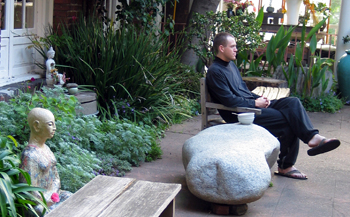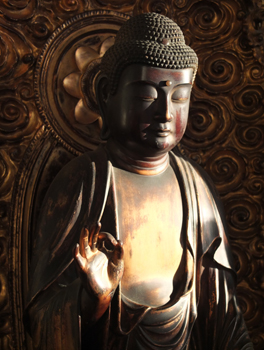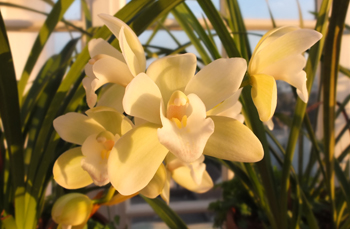by Kogan Sheldon, Program Assistant at San Francisco Zen Center
Ever wonder how to take care of yourself when suffering with depression and anxiety?We sometimes go into that question struggling with conditioned thoughts and behaviors that are actually hindrances to feeling better.  Lee Lipp’s experience with compassionate self-understanding flowered into years of working with others, bringing a message and methods–we can learn to identify, relate to, and discontinue those conditioned hindrances to well-being. Recently, she shared with me some of the background and nature of her work.
Lee Lipp’s experience with compassionate self-understanding flowered into years of working with others, bringing a message and methods–we can learn to identify, relate to, and discontinue those conditioned hindrances to well-being. Recently, she shared with me some of the background and nature of her work.
Kogan: You have helped others with healing transformation for many years. In your own life experience, can you pinpoint a transformation that inspired you to do this work?
Lee: Rather than pointing to a particular transformational experience, I can say that my interest in living a conscious, aware life began with a decision to take care of myself. I’d been a psychotherapist since 1981, in charge of a non-profit psychological service agency, teaching in a Master’s program and co-leading a traineeship program at a graduate school. I had just completed six week-long classes in which I taught mindfulness to a hospital staff who wished to include this in their alcohol/drug treatment and eating disorders treatment units.Flying back and forth to the hospital, maintaining my work with clients at home as well, I was wired, tired and disconnected from my own felt experience. The tipping point! I had been diagnosed with a chronic illness as well as what is called a catastrophic illness and realized that it was time for me to stop for a while and look at myself. Really look at myself.

By Shundo David Haye
Kogan: Your workshops emphasize direct experience and immediate awareness. You also are steeped in research from the fields of neuroscience and psychology. What is your personal process for balancing the heart and the intellect?
Lee: When I ask myself the question, “What’s going on here,†I’m engaging with our innate human-being mindfulness ability. As I’ve watched babies, I’ve seen them engage with first hand, direct experiential moments. What’s going on here, right now? Hmmm, do I like the taste of grass? And now? Dirt? Cookies? What is the process for balancing heart and intellect? I don’t know. With an attitude of self-research, I invite experience to show me balance. When I ask myself “what’s going on here†with open-minded willingness to be with whatever comes up, giving up an already held intellectual notion that I know what’s going on, I trust that each moment will show me what is actually going on. Ah, I almost left out that patience and self-empathy are my constant companions.
Kogan: What value do you find in marrying Zen practice with psychology?
Lee: Oy vey! I didn’t know that I got married! I came to SFZC for a year respite from years of professional activities, with the intention to stop and turn inward towards intimate self-understanding. I could say that I made a decision to marry myself! I suppose that I could say that I married all aspects of myself.

By Shundo David Haye
The Buddhist teacher who I had been meeting with taught me to meet and relate to my own pain, anxiety, depression, feelings of overwhelm and belief that I was simply not enough. When I told him that I wanted to move to a Buddhist center for one year to focus more on how to relate to my own pain, he suggested SFZC. I stayed in residence for 10 years and I’ve met and become intimate with even more aspects of myself: compassion, patience, satisfaction and joy. See Lee’s bio page for dates and more information on Lee’s workshops.Dr. Lipp also leads a weekly drop-in class, Transforming Depression and Anxiety, which is available to those who have completed one of the her workshops—either Transforming Depression and Anxiety: A Path of Skillful Compassion, or . We hope you will join us.











